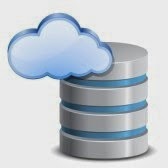Some organizations assume that because their enterprise data is already stored in "the cloud" that they do not need a separate backup solution for that data. That assumption is wrong. Cloud based solutions for data and application storage require the same diligence for backing up data as for locally stored data and applications. Plus, there are other situations you need to protect against that you may not have considered.
|
Backing up data is vital for businesses. Lost information can cause a major crisis or worse, lead to business failure. Individuals who don't backup computer data run the same risk. You need to treat your solution for data backup completely separate from your cloud-based solution for data and applications storage. Your cloud-based data and applications must be viewed simply as the virtual equivalent of having the data and applications hosted in your own facility. Therefore if you would have a data backup solution for your in-house facility, you must do so for your cloud based solutions.
Reasons for backing up your enterprise data are:
Point-In-Time Recovery
You may have business or regulatory needs to recover data from a specific point in time, such as the end of the year close. This could be for audit, tax or meet other requirements. Some databases have this feature built in, while others do not. If your cloud applications or databases do not support a point-in-time recovery, then you need to ensure your backup solution satisfies that requirement.
You may have business or regulatory needs to recover data from a specific point in time, such as the end of the year close. This could be for audit, tax or meet other requirements. Some databases have this feature built in, while others do not. If your cloud applications or databases do not support a point-in-time recovery, then you need to ensure your backup solution satisfies that requirement.
Accidental Deletion
Most applications allow the users to delete data. Users typically can delete network files they no longer need. When you need to recover lost data, the only means to do that may be via your backup solution.
Most applications allow the users to delete data. Users typically can delete network files they no longer need. When you need to recover lost data, the only means to do that may be via your backup solution.
Protect Against Virus or Corrupt Data
While it is likely that your cloud based service provider has virus protection within their operation, it may not be in force on your instance of the application or data storage. In that case should your data become corrupt, you will need to recover the data from your backup solution.
While it is likely that your cloud based service provider has virus protection within their operation, it may not be in force on your instance of the application or data storage. In that case should your data become corrupt, you will need to recover the data from your backup solution.
Reasons to backup your enterprise data stored in the cloud:
Don't assume the cloud provider is backing up your data
The cloud provider will agree to do whatever is in your contract. They may have their own virus scanning, backup and recovery procedures for their operations. However, that may not be applicable to you or may not meet your specific needs or timing.
The cloud provider will agree to do whatever is in your contract. They may have their own virus scanning, backup and recovery procedures for their operations. However, that may not be applicable to you or may not meet your specific needs or timing.
Your Cloud Provider Goes Out of Business
If your cloud based data and applications storage provide goes out of business, you lost your data. You may be able to quickly contract with another vendor to host your applications and install the software. If your only copy of the current data is with the vendor that is out of business, you have likely lost that data forever. Even if you could sue the vendor to recover the data and/or damages, it will take much too long for your needed recovery.
If your cloud based data and applications storage provide goes out of business, you lost your data. You may be able to quickly contract with another vendor to host your applications and install the software. If your only copy of the current data is with the vendor that is out of business, you have likely lost that data forever. Even if you could sue the vendor to recover the data and/or damages, it will take much too long for your needed recovery.
Your choice for a data backup solution and provider will be made based on your data recovery needs. You primary consideration must be that your data backup solution provider be different than your production application and data provider. That's because of my final point above. If you have one provider and that organization goes out of business, you lost your data even though its backed up.
David Schuchman


David - good blog - and I could not agree more. Backups are critically important and may also be required in the event of a disaster. Companies should not only ensure that their cloud providers take backups but that they perform disaster recovery exercises that validate that they can indeed recover.
ReplyDeleteThanks for your comment, David. You provided great additional points.
DeleteA very interesting read and a great post all together. Thanks for sharing.
ReplyDeleteRemote Data Backup | Enterprise Backup System